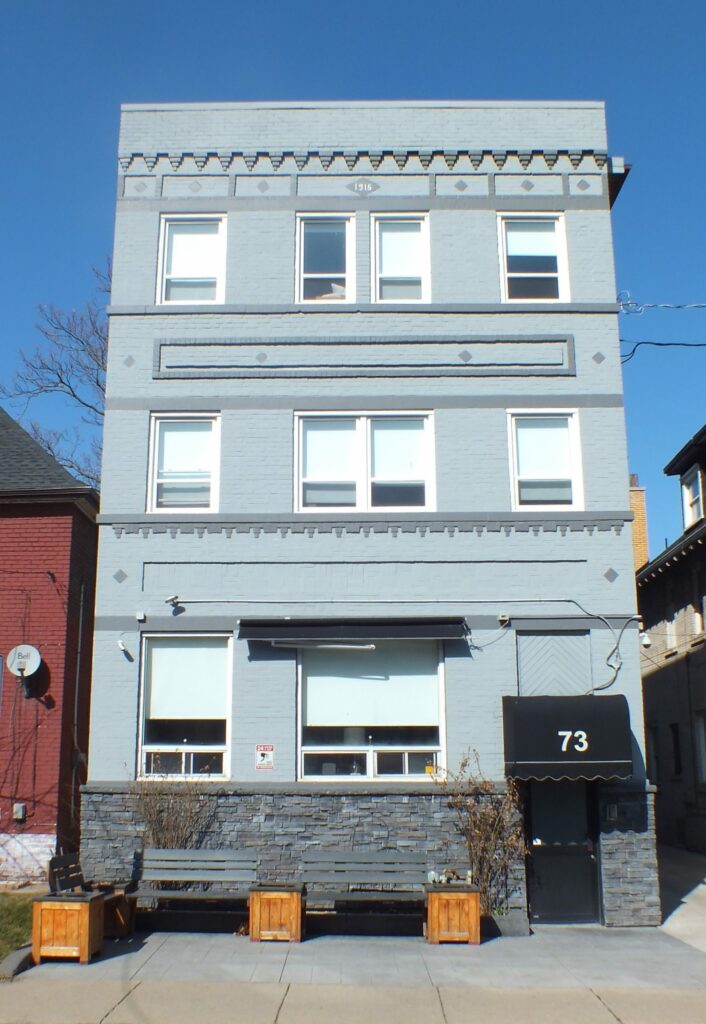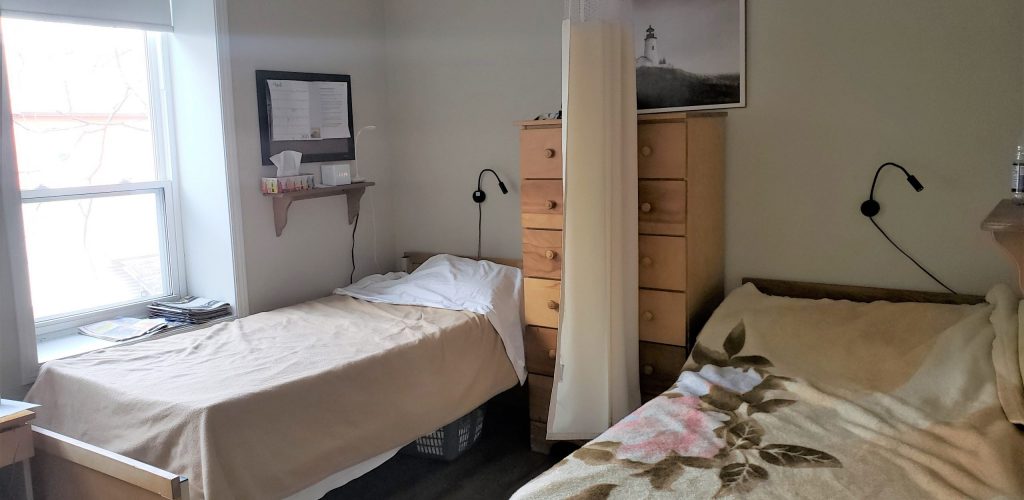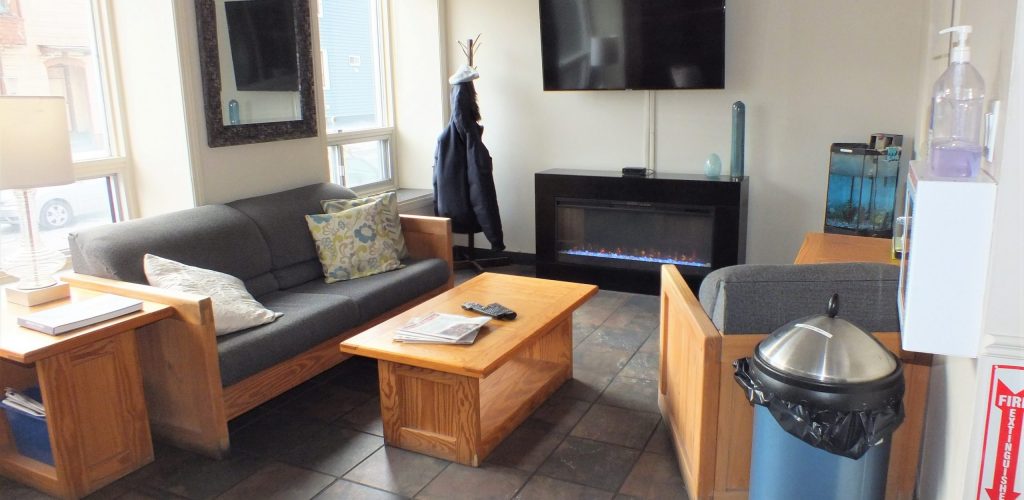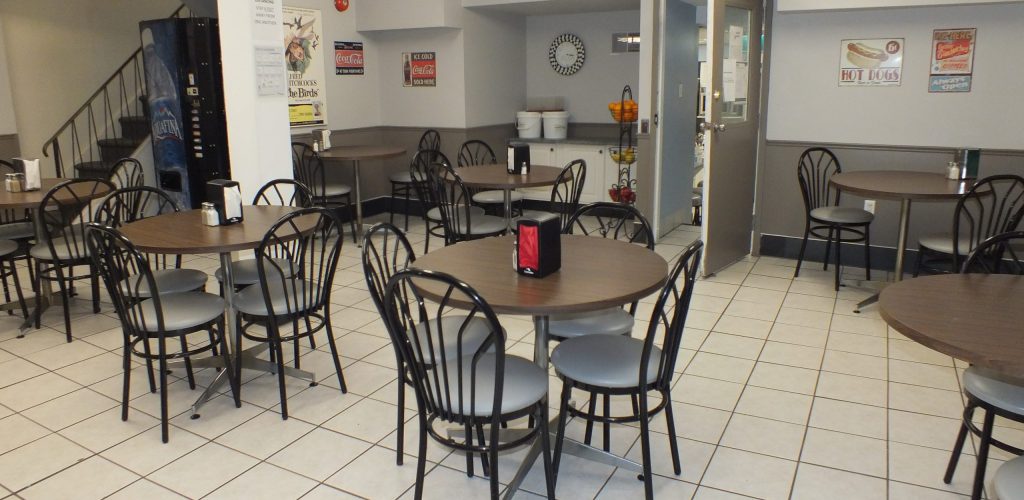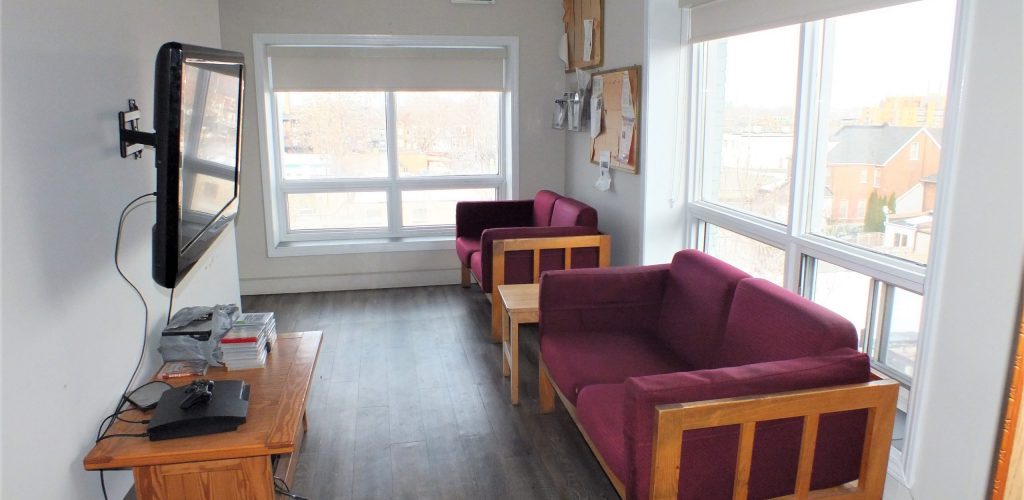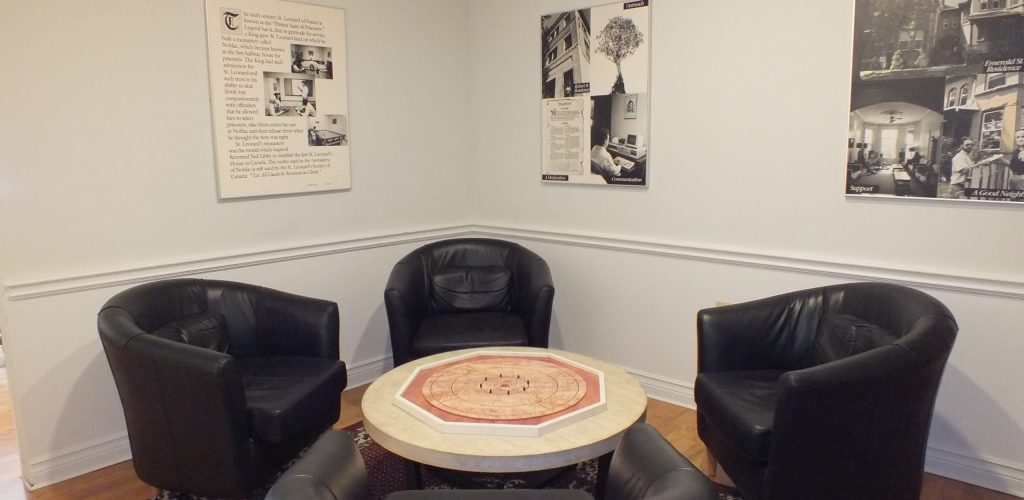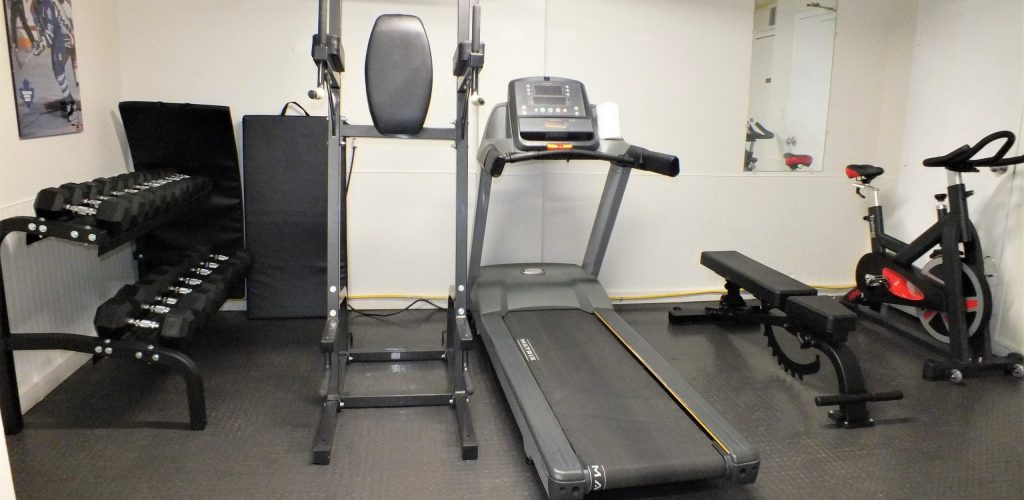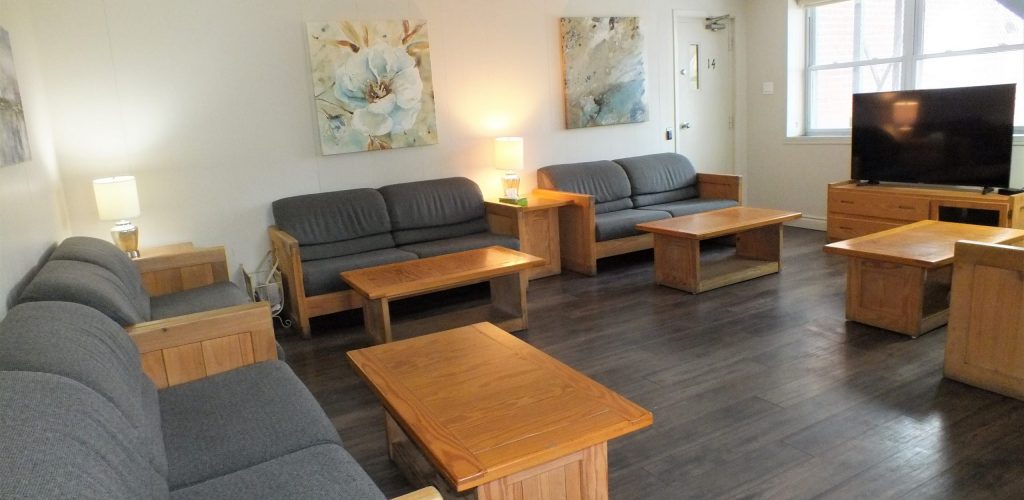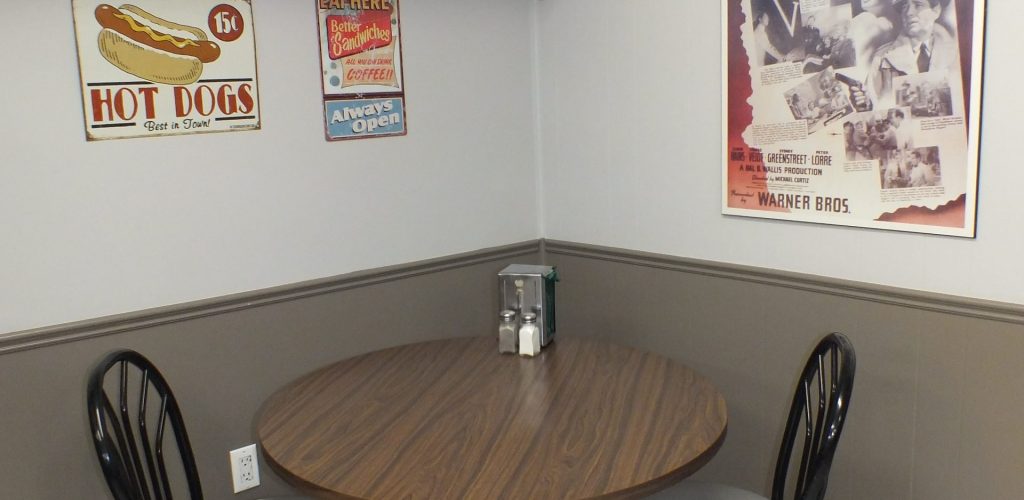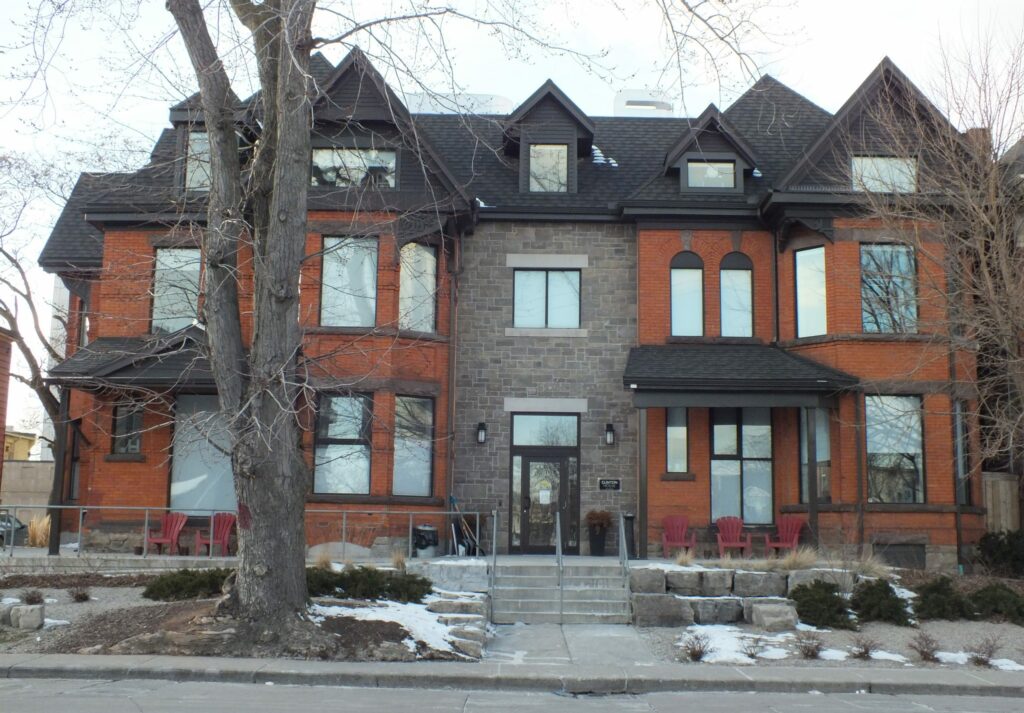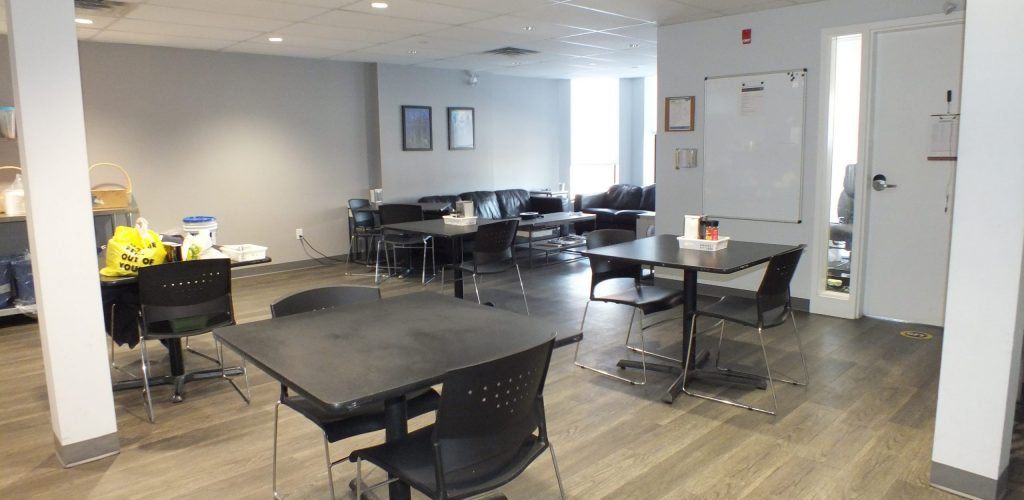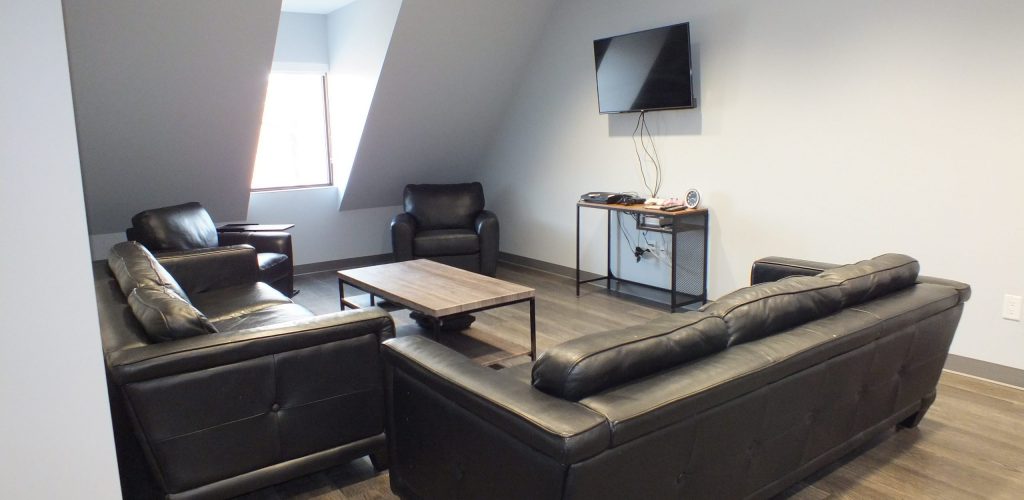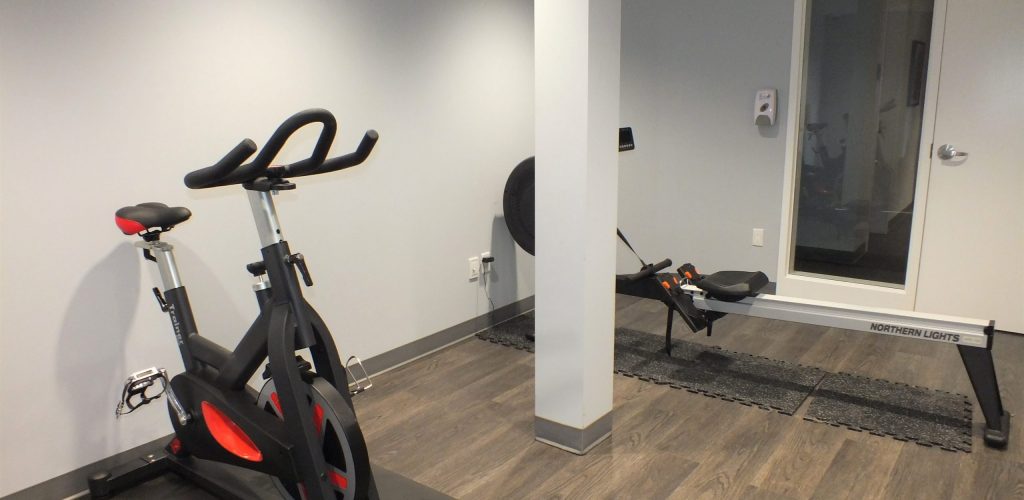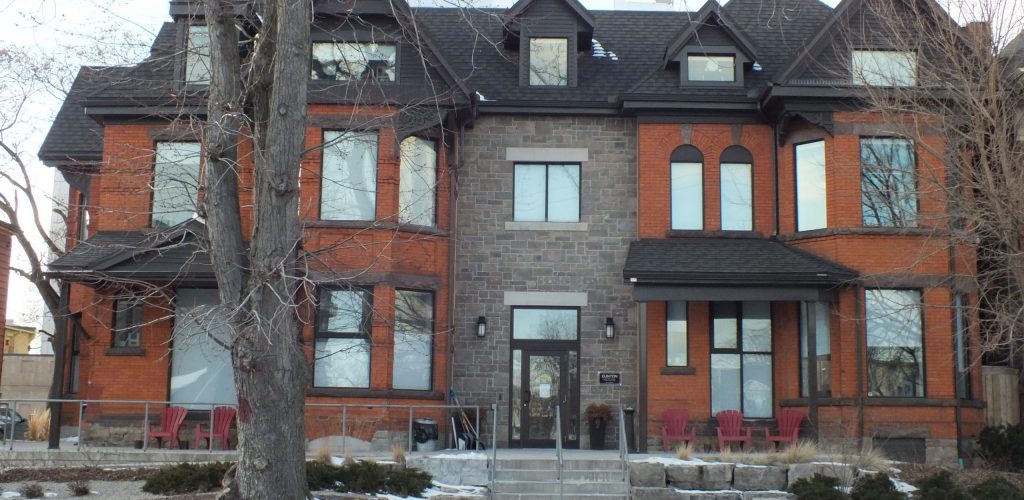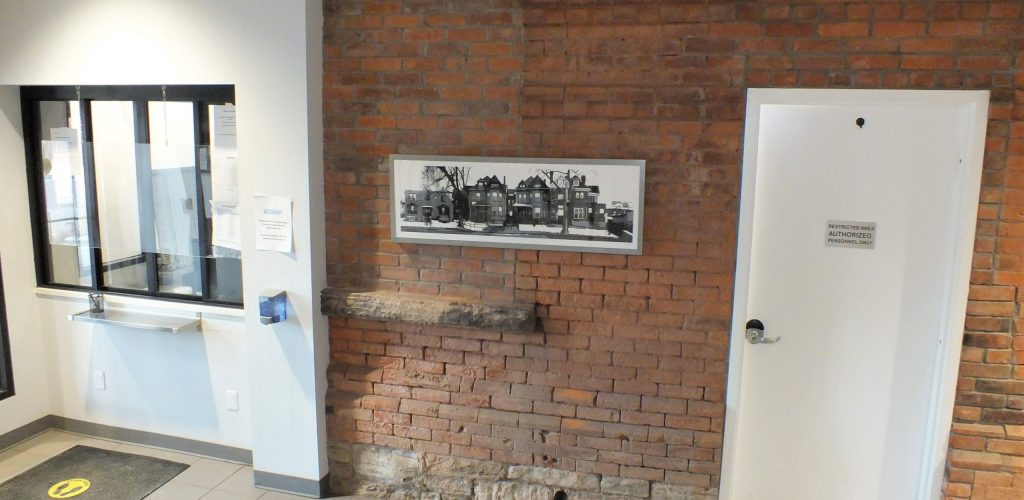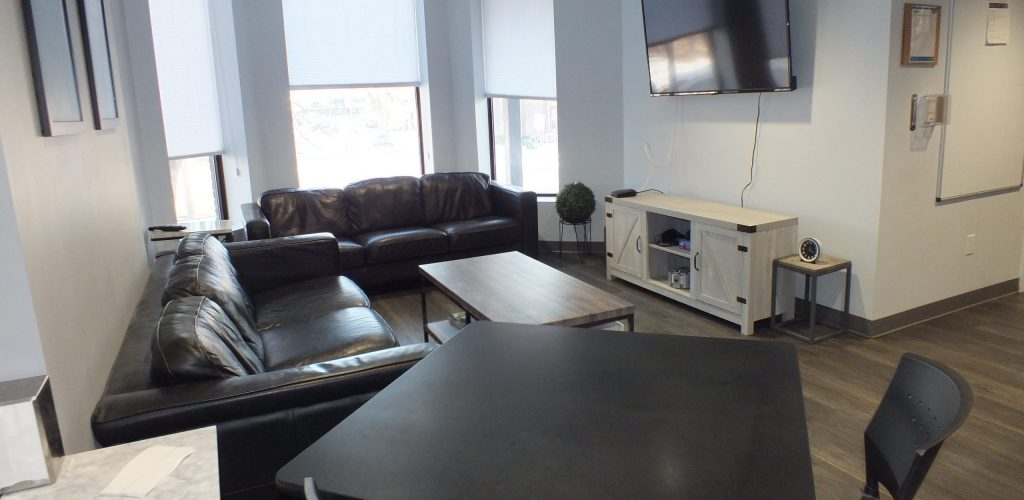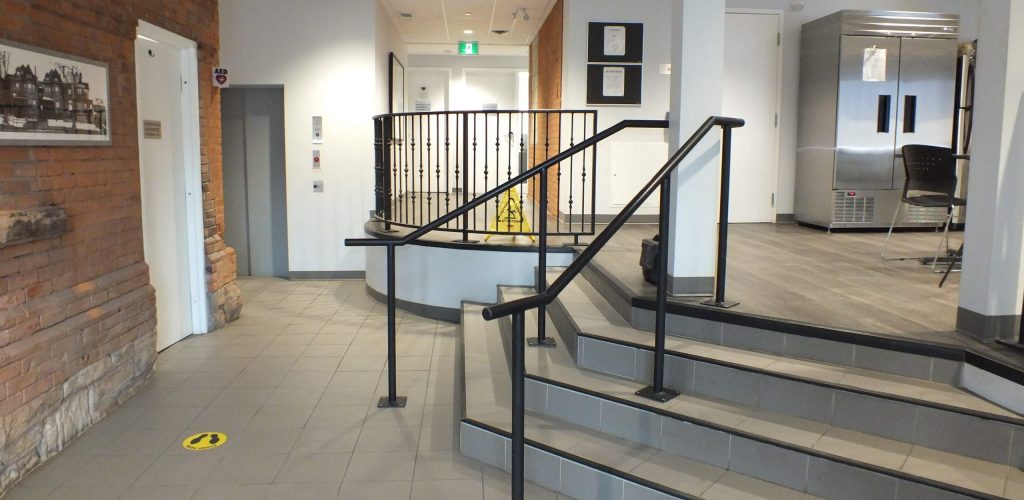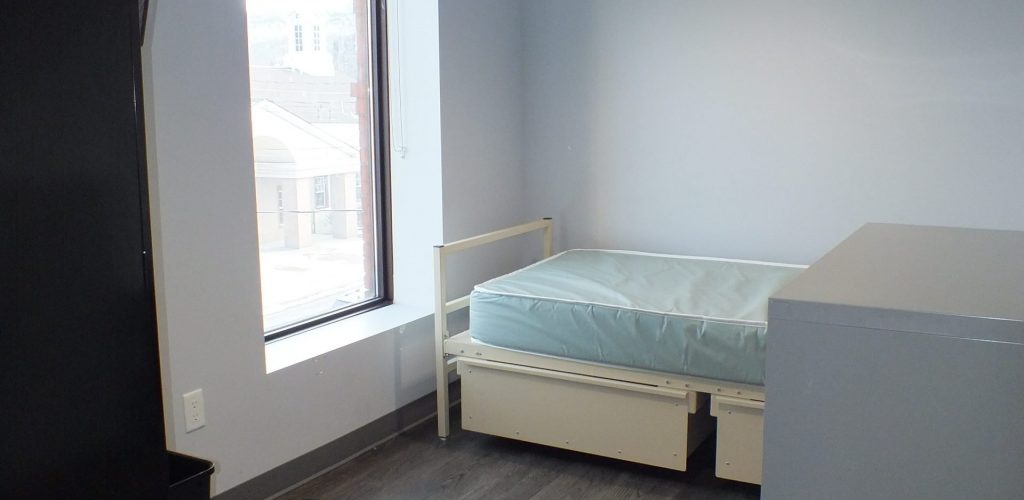Robert Street Residence
The facility located at 73 Robert Street is a 25–bed Community Residential Centre. This facility provides programs to individuals paroled to the community by virtue of conditional releases from federal penitentiaries and is funded by Correctional Service Canada. The program goal is to promote in our residents a cognitive developmental perspective contrary to the immediate need and path of least resistance way of reasoning that supported their problematic behaviour. Insofar as prison environments by their very nature are regressive, we characterize our goal as facilitating transition from a maladaptive way of reasoning and behaving, to positive community standards and socially acceptable behaviours.
Our goal at Robert Street is achieved through dually focused initiatives of equal importance. Individually focused plans of transition are collaboratively developed between staff and residents. Actions are specified, time targeted and related to the goal to leave our facility as an independent, contributing member of the community. Progress is continually monitored with the view to providing focused intervention where needed.
In support of our individual plans of transition we have a Therapeutic Community at Robert Street that was developed and implemented through the collaborative efforts of residents and staff. As part of this process, we have a constitution that we proudly display. We also have a program manual which defines acceptable behaviours and rational consequences. The environment is embraced by each new generation of residents and staff through careful recruitment, orientation and training.
Our Therapeutic Community and its objectives are constantly monitored by two empirical methods. One method evaluates the environment, the other, individual ways of reasoning. The results of both are used to focus interventions where they are most needed. Success at Robert Street is ultimately measured by residents leaving our facility to live independently in a community they no longer feel alienated from. While collaborative work between our staff and residents is critical to our success, the knowledge base and skill of specially trained counsellors is essential to achieving our goal.

